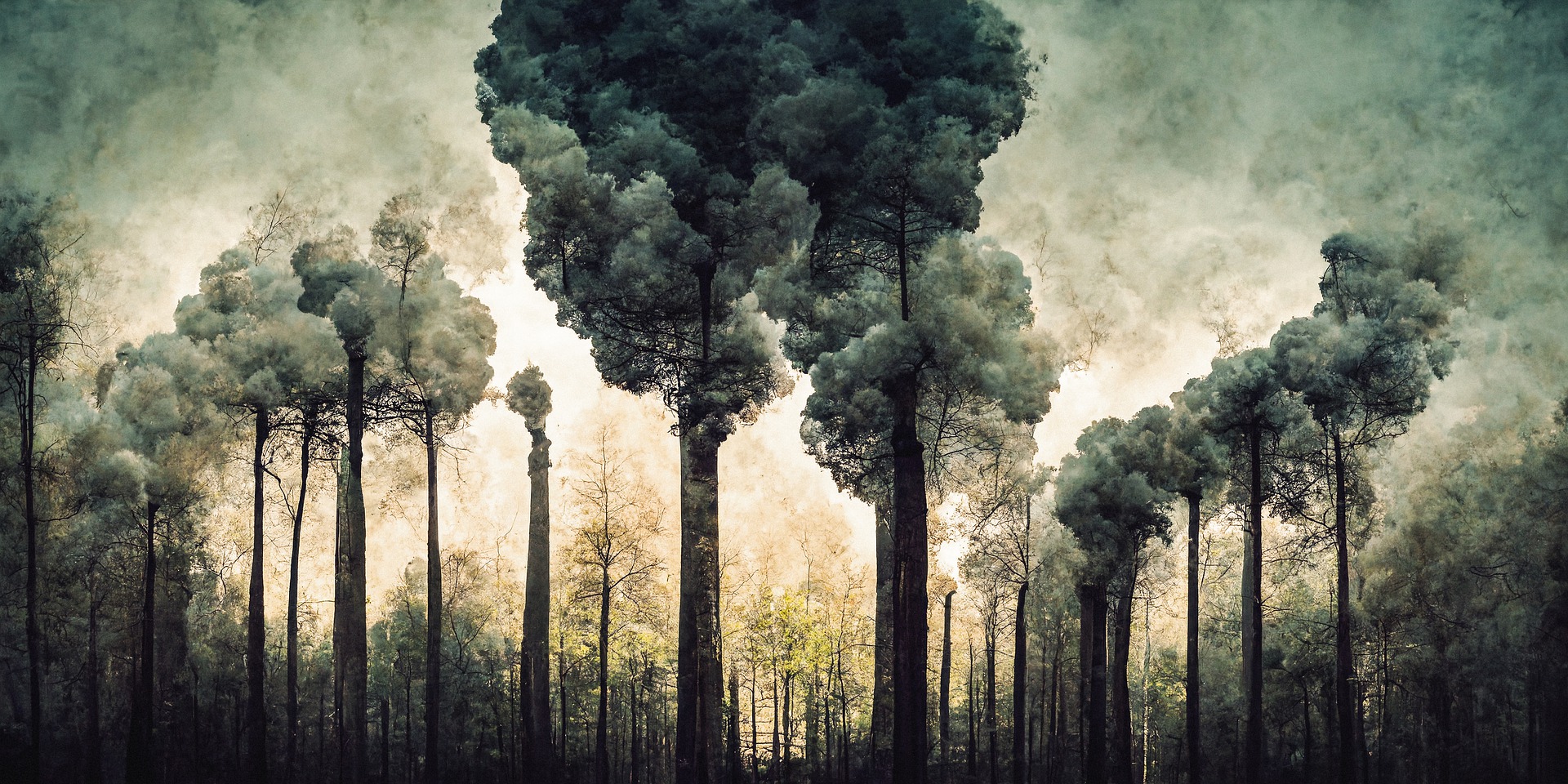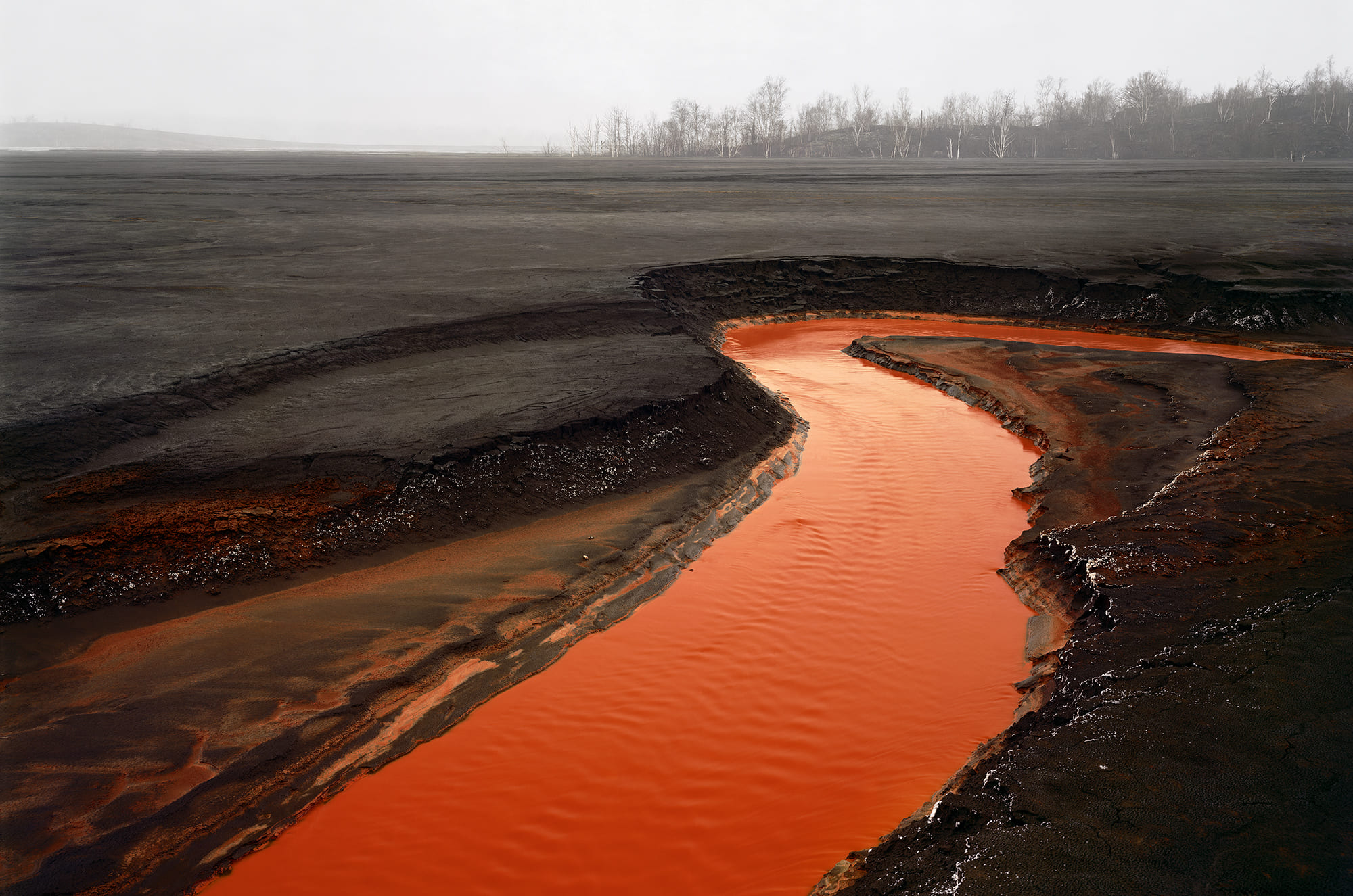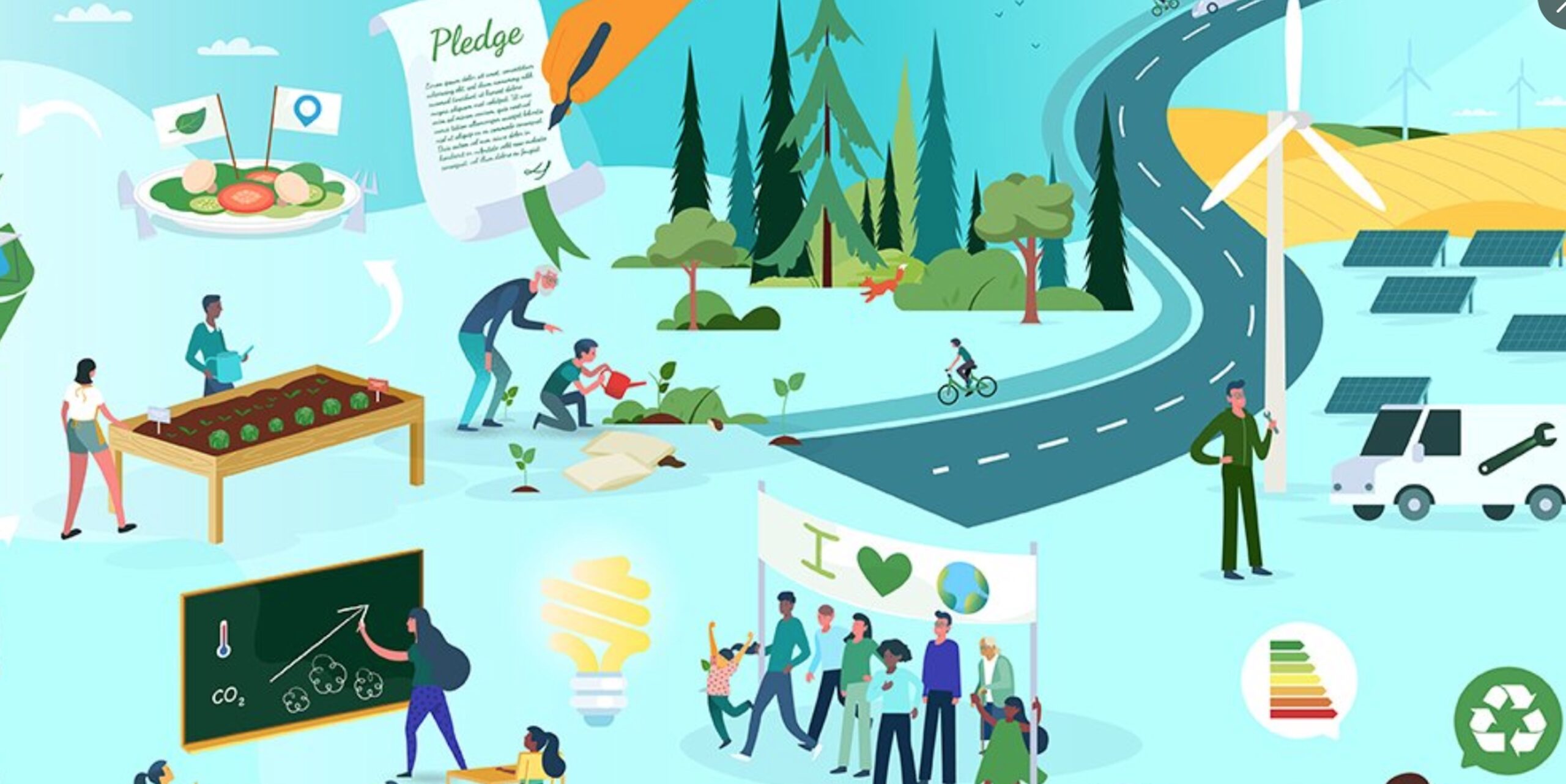The second instalment of the IPCC Working Group II’s Sixth Assessment Report (AR6) was released on Monday, February 28. The first of its kind since the one published in 2014 the report focuses on the impacts of climate change on humans and the planet, revealing with more clarity and more certainty that our window for action is closing fast.
It reveals how scientific knowledge is advancing and granting a clearer picture of the effects of global warming as well as what we can do about it, although the latter part will receive more attention in the Working Group III report on how to avoid catastrophic climate change which will be released in March.
Notwithstanding the outbreak of war in Ukraine – following the Russian invasion – media, experts and opinionists around the world have covered the landmark report. Below is a collection of some of the main takeaways and coverage from a variety of sources, countries and regions.
The #IPCC released its latest #ClimateReport today, #ClimateChange 2022: Impacts, Adaptation & Vulnerability
“The scientific evidence is unequivocal: #climatechange is a threat to human wellbeing & the health of the planet,” – @poertner_hans
➡️ https://t.co/sz89t4EKHj
🎥 ⬇️ pic.twitter.com/Ol0GCPFvu7— IPCC (@IPCC_CH) February 28, 2022
Climate change is getting worse rather than better
Multiple sources created their list of main takeaways from the report. BBC climate reporter Matt McGrath focused on climate change being worse than previously thought, loss and damage now having a scientific backing, technology not being enough to turn the tide, cities potentially helping in the fight against climate change, and – last but not least – time is running out.
“From the melting of the Greenland ice sheet to the destruction of coral reefs, climate related impacts are hitting the world at the high end of what modellers once expected. And much more quickly than previously assessed by the IPCC.”
In a similar effort, Patrick Galey also compiled his list of main points taken from the WGII report for Climate Change News. These include the dire effects of climate change on our health: “Climate change is already damaging the physical and mental health of everyone on Earth, with half of humanity already vulnerable to water insecurity and billions more at risk of extreme heat events, vector-borne diseases and hunger linked to global heating.”
NEW
Five takeaways from the UN’s 2022 climate impacts #IPCC report
✍️ @patrickgaley https://t.co/EMwIrx5Lm0 pic.twitter.com/PWrbjzWG5N
— Climate Home News (@ClimateHome) February 28, 2022
Furthermore, Galey looks at some of the irreversible effects of climate change and how we are approaching a point of no return even if we are able to implement the countless adaptation strategies that are listeD in the 4,000 page report. “Even with adequate finance and management, we “cannot eliminate” all losses and damages. Holding temperature rise close to 1.5C would “substantially reduce” the scale of harm.”
The report also reveals with ever more clarity how those most affected by climate change – both now and in the future – are the poorest members of society and that each 0.1 degree Celsius matters with impacts growing exponentially as temperatures increase.
Overall most analysts agree that inaction has caused the world to continue down a negative spiral and that the odds of humanity turning thigs around are getting worse and worse.
UN secretary general, António Guterres, also described the failure of global leadership to step up to the climate challenge as “criminal” and that the world’s biggest polluters, “are guilty of arson on our only home”.
According to the Guardian’s Editorial, this report is the final warning and that “the next time the world’s scientists pronounce will be at the end of the decade – when it will be too late to stop the rot.” Whilst also looking at the recent war in Ukraine as yet another reason to step up the energy transition whilst lamenting that the German decision to increase military spending is a pity as “a similar sum could not be found over a decade to help vulnerable nations deal with the climate crisis.”
Coverage from around the world
Although the unfolding crisis in Ukraine has taken most of the headlines, global coverage of the IPCC report has tended to focus on the regional implications of scientific assessments of future impacts of climate change.
This reflects the WGII’s deliberate focus on outlining the consequences of climate change in individual regions.
In China, The People’s Daily (the largest newspaper group in China) featured articles on the need for a speedy transition to renewables and how the risks of climate change will develop over the next 20 years, with over 5 million residents and roughly 25% of the coastline in China classified as highly vulnerable, with numbers expected to double in the next 80 years.
A reflection that leads the China Dialogue to focus on the need for rich countries to pay for the loss and damage that they have caused.
"Rich countries must pay up for the #LossAndDamage they have caused." – @not_DJW @GlobalJusticeUK https://t.co/DkrJfWOYdl
— China Dialogue (@chinadialogue) March 5, 2022
In fact, China is expected to suffer the largest economic losses in the world due to climate change with the region of Guangzhou particularly vulnerable. However, SupChina ( New York-based, China-focused news website) reports that “China’s overarching guideline is to transform energy “in an orderly manner,” after a severe power crunch last year threatened global markets and Chinese citizens alike, raising concerns over the degree to which the government will commit to capping emissions.”
In India, daily newspapers focus on the need to adapt to the coming impacts of climate change, with a strong focus on the future role of cities. In The Indian Express, one of the main daily newspapers, author Menaka Guruswamy focuses on the lack of political leadership in his country and a failure to grasp the severity of the situation outlined in the IPCC report.
Guruswamy calls for fiscal and policy measures whilst saying that this will require a political push that has thus far failed to materialise. “Now those of us who live in India don’t need the UN Secretary General to tell us that climate change is clobbering us. We are living in the future that the IPCC predicts. Our cities are experiencing more frequent extreme heat waves.”
Issues that Esha Roy and Amitabh Sinha also highlight in their articles by emphasising how India is a vulnerable hotspot, with several regions and cities facing climate change phenomena like flooding, sea-level rise and heatwaves.
A concise description of the IPCC process. Explainer by Amitabh Sinha @IndianExpress: https://t.co/GRZpMmUd1l
— Ambarish Karmalkar (@kar_amb) August 10, 2021
In Australia the Financial review focuses on the inevitably of more hot days, floods and ocean heatwaves, explaining that: “Australia will need to aggressively ramp up investment in infrastructure and business resilience as climate changes accelerate, bringing droughts to the continent’s south and floods across the north.”
The Sydney Morning Herald also looks at the impacts of projected climate change on the Australian economy, with the bill expected to rack up into the hundreds of billions of dollars.
“That means that, under 2 degrees of warming, Australia’s economy would miss out on $115 billion in lost earnings over the next decade and $350 billion over the next 20 years. Under 3 degrees warming, the economy would lose $200 billion in potential earnings by 2032 and $600 billion by 2042,” writes Mike Foley.
In the words of…
Numerous climate scientists, opinionists and esteemed climate experts have also taken to Twitter to comment on the report and offer unique readings and assessments of the content.
The online magazine Nature features a collection of comments from scientists around the world that helped author the report that help highlight some of the main takeaways.
According to climate scientist Zack Labe: “Every small increase in warming will result in increased risks.” In his tweet he shares an IPCC graphic which shows biodiversity loss at different global warming levels.
"Every small increase in warming will result in increased risks." —-> graphic shows biodiversity loss at different global warming levels
+ Press release from today's @IPCC_CH report available at https://t.co/sBZd5WiPk7 pic.twitter.com/ukOF41mulF
— Zack Labe (@ZLabe) March 1, 2022
Climate Scientists Zeke Hausfather chose to focus on how the new report focuses on global warming levels rather than emissions scenarios, which is a way of recognising that there are many combinations of emissions, climate sensitivity, and carbon cycle feedbacks that gets us to different levels. For Hausfather moving away from emissions scenarios is a vital step that must continue in the future.
One nice change in the IPCC AR6 a focus on global warming levels (1.5C, 2C, 3C, 4C) rather than emissions scenarios. This implicitly recognizes there are a lot of different combinations of emissions, climate sensitivity, and carbon cycle feedbacks that gets us to different levels pic.twitter.com/Yrol2rGivu
— Dr. Zeke Hausfather (@hausfath) February 28, 2022
Climate policy reporter at Politico, Zia Weise, weighed in on the inequality of climate change, pointing out how the countries facing the worst climate impacts are those who contributed the least to global warming — as well as having the fewest resources to adapt.
Climate change is splitting the world in two.
The latest IPCC report drives home the fact that countries facing the worst climate impacts are those who contributed the least to global warming — and have the fewest resources to adapt.
Our story: https://t.co/fAM2k7T2v8
— Zia Weise (@ZiaWeise) February 28, 2022
Finally, director and editor of Carbon Brief, Leo Hickman, chose to focus on the report’s conclusion which reads: “The scientific evidence is unequivocal: climate change is a threat to human well-being and the health of the planet. Any further delay in concerted global action will miss a brief and rapidly closing window to secure a liveable future.”
The final sentence of new IPCC report:
"The scientific evidence is unequivocal: climate change is a threat to human well-being and the health of the planet.
Any further delay in concerted global action will miss a brief and rapidly closing window to secure a liveable future."— Leo Hickman (@LeoHickman) February 28, 2022
An in-depth summary of the report can be found on the Carbon Brief website or you can read the Summary for Policymakers here.






